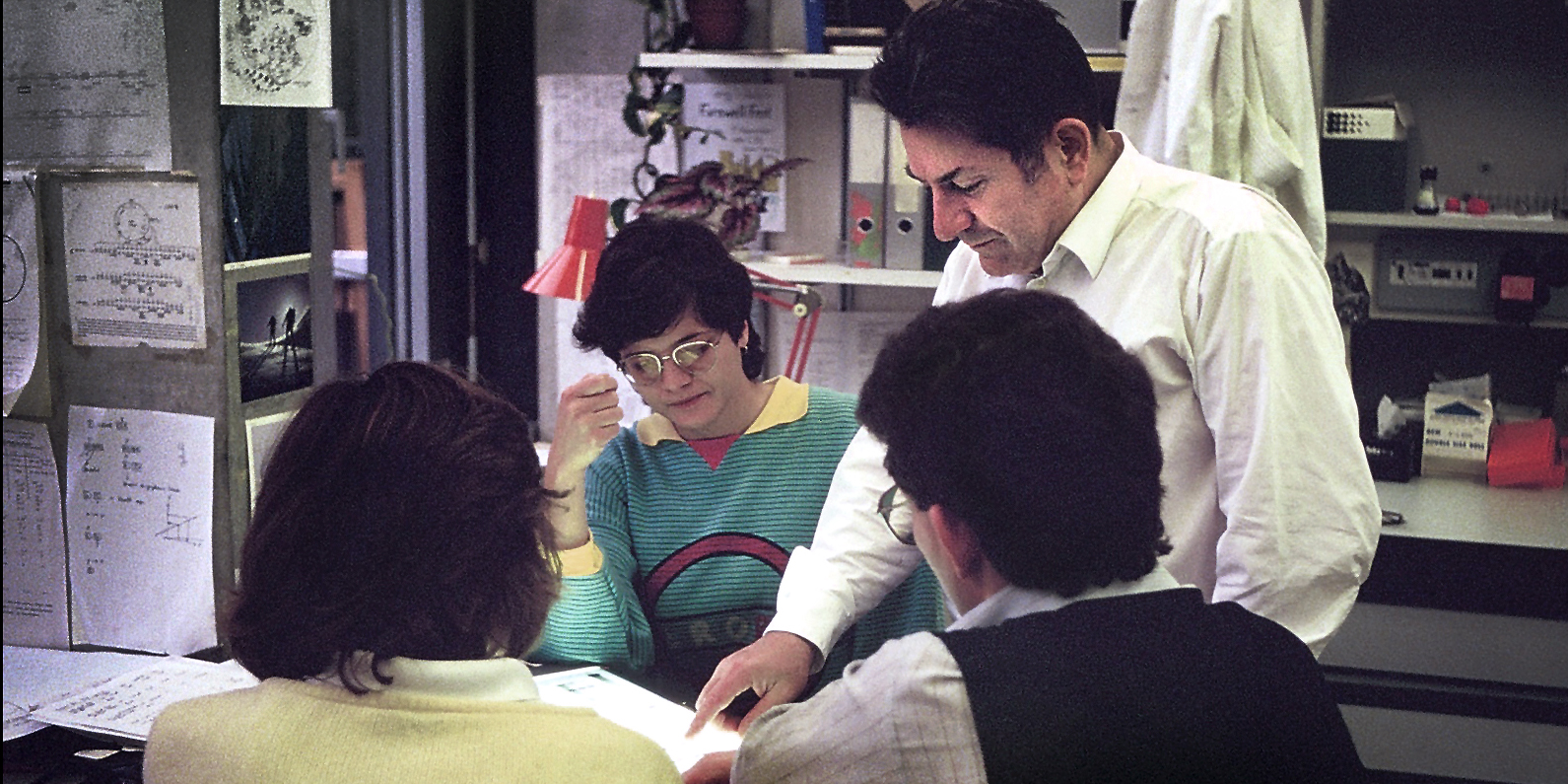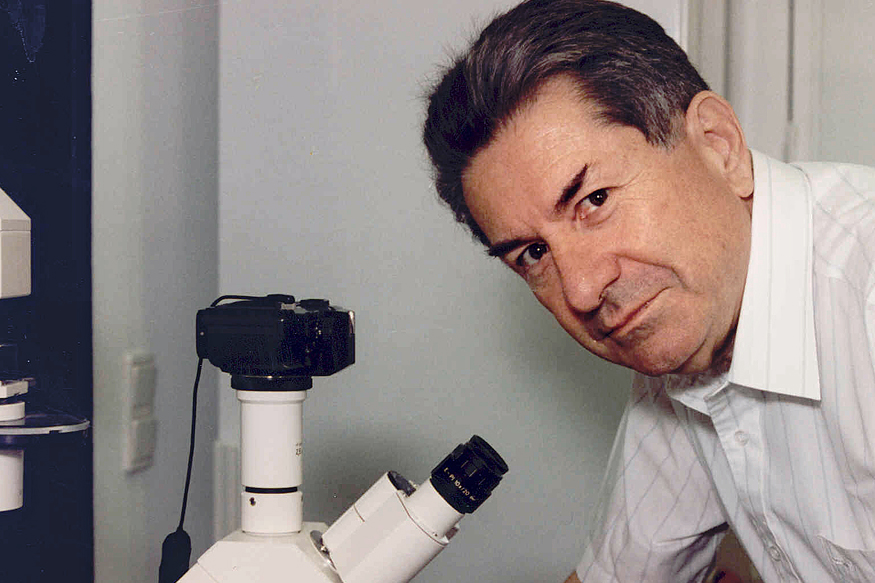The International Birnstiel Award for Doctoral Research in Molecular Life Sciences is named after the founding director of the IMP, Max L. Birnstiel. His legacy building on both molecular life sciences and research management is the foundation for the awards and their mission to build a community of outstanding talent.

Max Luciano Birnstiel was born in Brazil on 12 July 1933. His parents moved to their native Switzerland when he was five, and Birnstiel attended school there. Interested in biology from an early age, Birnstiel studied physical chemistry at the ETH in Zurich, reasoning that quantitative methods would be key to solving important biological problems.
After a doctorate at the ETH and a postdoc at CalTech, Birnstiel moved to the new MRC Epigenetics Research Group in Edinburgh, where he stayed for nearly a decade. His familiarity with physical methods enabled him to become the first person to purify eukaryotic genes (for ribosomal RNA) to homogeneity, long before the advent of cloning procedures, and together with Hugh Wallace he showed that the ribosomal RNA genes of the frog Xenopus laevis were arranged in tandem repeats in the nucleolus organiser, thereby revealing the nucleolus as the site of ribosomal RNA production.
Birnstiel returned to Zurich as Director of the Institute of Molecular Biology, where over the following 16 years he made several ground-breaking discoveries. His lab isolated vertebrate histone genes and transfer RNA genes and discovered how the 3’ ends of histone messenger RNA (mRNA) are formed. His characterisation of the regulatory regions (promoters) of eukaryotic genes attracted considerable attention and led to numerous awards.

In the mid-1980s, Birnstiel was invited to become founding director of a new basic research institute, started as a joint venture between Boehringer Ingelheim and Genentech. The Institute of Molecular Pathology (IMP) was formally founded 1985, becoming fully operational in 1988. As Director, Birnstiel recruited outstanding scientists to join him, including Adrian Bird, Meinrad Busslinger, Kim Nasmyth, Erwin Wagner and Hartmut Beug. Moreover, Birnstiel assembled the first Scientific Advisory Board and helped conceptualise the structure of the institute, seeking inspiration from other leading molecular biology institutions in Europe.
In the early 1990s, Birnstiel partnered with the University of Vienna to move its own molecular biology departments (now the Max Perutz Labs) to a site adjacent to the IMP. In 1993, the Vienna BioCenter International PhD Programme was established as a joint enterprise of the IMP and the university.
First spin-off companies joined from 1999, and with the Institute of Molecular Biotechnology (IMBA) and the Gregor Mendel Institute of Molecular Plant Biology (GMI), both part of the Austrian Academy of Sciences (ÖAW), a research cluster now numbering 90 groups developed. Today, the Vienna BioCenter is one of Europe’s most dynamic life science hubs, comprising four research institutes, three universities, and three dozen biotech companies. As of 2021, over 2000 employees from 79 countries work here.
During the decade Birnstiel spent in Vienna, he maintained a productive research group, extending his work on the 3’ processing of histone mRNA and also focusing on improving gene delivery systems and on developing new approaches for cancer vaccines. Birnstiel’s own work contributed to the IMP’s worldwide reputation, putting it among the top institutes in molecular life sciences.
Birnstiel remained active after his retirement in 1996. He was a driving force behind the founding of Intercell (which later became part of Valneva), and maintained board memberships. He retained a keen interest in the IMP’s research and was always willing to discuss ideas and visions with his many scientific friends. Birnstiel died at the age of 81 from heart failure on 15 November 2014 while receiving radiotherapy.
Throughout his life, Max Birnstiel was a supporter of young talent and fostered an egalitarian culture at the IMP and elsewhere. It was in this spirit that a foundation was set up bearing his name in 2018. The Max Birnstiel Foundation co-funds initiatives and activities that support young scientists in molecular life sciences.
Further Reading
Biography: IMP Founding Director Max Birnstiel
Schatz, G. (2015): Obituary Max L. Birnstiel (1933–2014). Cell.
https://doi.org/10.1016/j.cell.2014.12.030
Grundstein, M., and Bird, A. (2015): Max Birnstiel 1933–2014: Gene pioneer. PNAS.
https://doi.org/10.1073/pnas.1423755112
http://maxbirnstiel.org/
Max Birnstiel Foundation